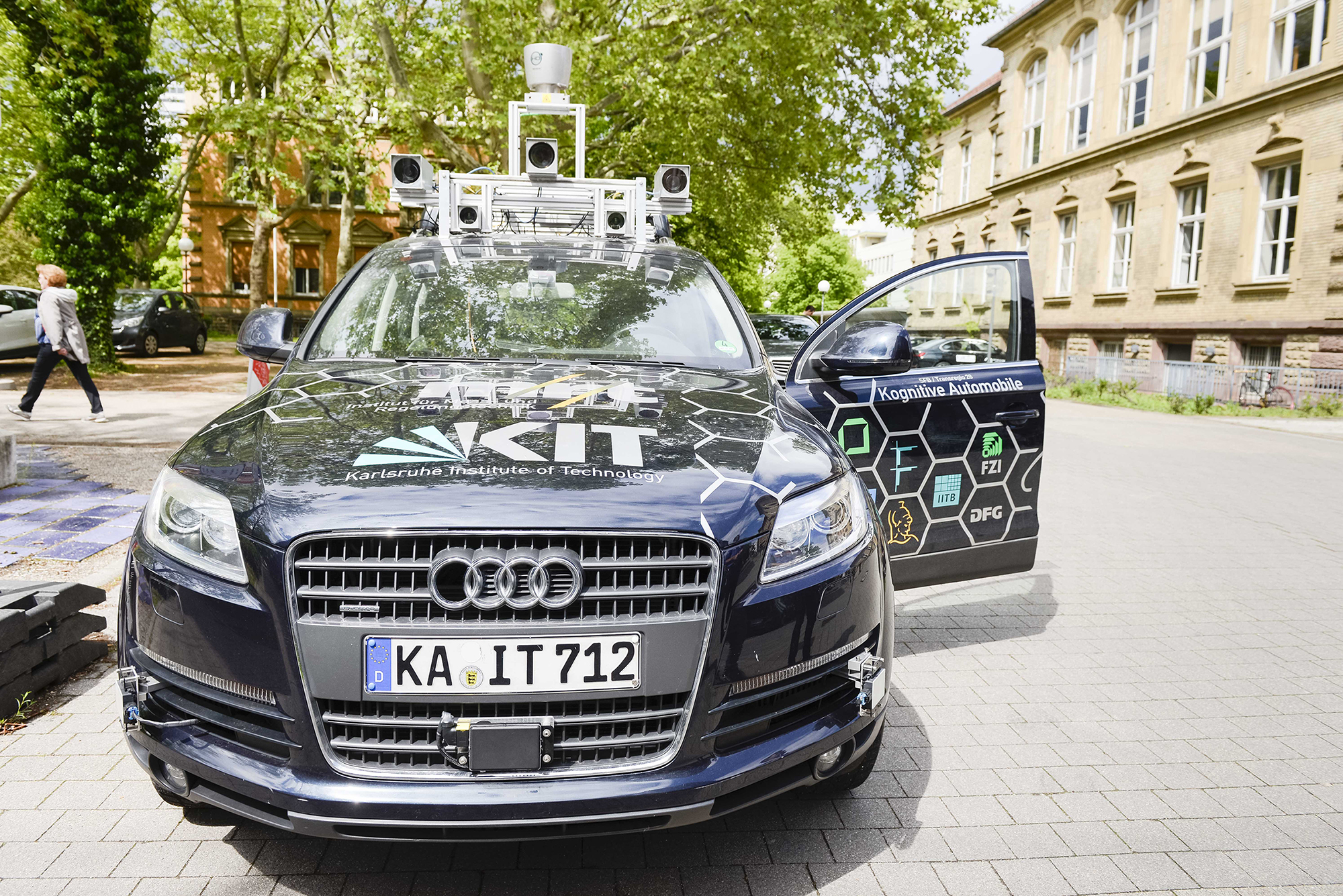Future Mobility Is Designed by KIT
Quick and reliable transportation of people and goods with a low consumption of resources is a basic prerequisite for the functioning of our modern society. At KIT, about 800 scientists of nearly 40 institutes conduct research into forward-looking, safe, sustainable, and comfortable solutions for future mobility. Scarcity of resources, lacking space, and overstrained infrastructure call for an integrated assessment of transport means and traffic flows. Within the framework of KIT’s seamless mobility concept, aspects like transportation, infrastructure, and energy are analyzed holistically from the perspective of various scientific disciplines. KIT scientists develop alternative drive systems as well as latest combustion engines, conceive new solutions for electrical energy storage systems, implement ideas for intelligent transportation networks, test the production of regenerative fuels, advance methods for product development, devise concepts for lightweight construction, improve cyber security of mobility systems, or discuss legal and social aspects of autonomous driving. At KIT, we look for answers to questions crucial to the existence and further development of our society. This includes mobility that is easily accessible, affordable, environmentally friendly, and accepted by the people.
Joint Research for Tomorrow’s Mobility
The Karlsruhe High Performance Center for Mobility Research
Only when research and industry collaborate will future mobility become reality. The Karlsruhe High Performance Center for Mobility Research represents an association of local institutions for research and education relating to mobility systems. The Center is the central contact point for partners and clients, it is trendsetter and advisor for the transformation of our mobility system. The goal: Quick and smooth application of scientific findings for the benefit of our industry and society.
Joint Testing of Future Mobility
Accompanying Research on the Baden-Württemberg Test Area for Autonomous Driving
Nur im Zusammenwirken von Forschung und Industrie wird die Mobilität der Zukunft Wirklichkeit. Die Profilregion Mobilitätssysteme Karlsruhe ist der Zusammenschluss der Karlsruher Institutionen für Forschung und Lehre im Bereich der Mobilitätssysteme. Das Leistungszentrum dient als zentrale Anlaufstelle für Partner und Kunden, ist Impulsgeber und Berater für die Transformation unseres Mobilitätssystems. Das Ziel: Wissenschaftliche Erkenntnisse werden schnell und reibungslos zum Nutzen unserer Wirtschaft und Gesellschaft angewandt.
Innovation Campus
Joint Fundamental Research for Future Mobility
Climate change, urbanization, and scarcity of resources push the development of technologies for zero-emission energy production and zero-emission vehicles, extending from cars to planes to ships. Within the Innovation Campus “Future Mobility” (ICM), Stuttgart University and Karlsruhe Institute of Technology (KIT) conduct joint research into automotive engineering, product development, production technology, chemistry, materials, electrical engineering, aircraft construction, and machine tools to develop new, ground-breaking technologies for mobility and manufacture. Work focuses on zero-emission drives and additive manufacture, i.e. use of 3D printers or (lightweight) components and components with entirely new functions. Using new production technologies, emissions of drives and vehicles can be reduced by decreasing weight, assembly space, material and energy consumption or combining functionalities of different components. This would result in smaller vehicles adjusted to “first & last mile” mobility, i.e. vehicles combining individual and public transportation systems, such as smart commuter mobiles for short distances. Another goal: Decentralized production. In this case, a “universal machine” transmits digital production data, while products are manufactured locally within short terms, at low cost, and in small number. Expensive storage and vulnerable supply chains are no longer required.


